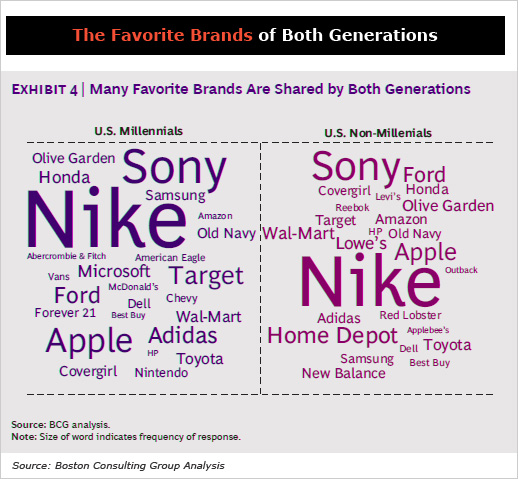John T. Rogers, age 26, grew up in rural West Texas, raised by a single mother who often worked three jobs to make ends meet. He says his 59-year-old mother remains fiscally conservative, refusing to spend a dime on herself, though she now earns a respectable income.
But when it comes to spending, Rogers is not following in her footsteps. "Not to knock J.C. Penney's, but I definitely wanted to step up my style," he said. Earning $46,000 a year as a communications manager for a private, non-profit university in Denver hasn't held him back. He bought a hybrid Lexus SUV after graduating from college and recently purchased a $950 Hugo Boss suit as well as the iPad 3, since the MacBook he purchased five years ago "moves at a glacial pace and I can't carry it around to meetings and look cool."
To balance his spending, Rogers skimps in other areas, shunning trips to Starbucks and seeking out free or inexpensive cultural activities. Still, he's racked up $3,500 in credit card debt and owes $19,000 in undergraduate loans and $22,000 in graduate loans that will kick in this September.
RELATED: Gen Y vs. Boomers: Workplace Conflict Heats Up
Rogers is like many of his millennial peers, who are helping to jumpstart the economy in ways that their more fiscally conservative boomer parents are not. Despite the fact that those ages 18 to 29 have among the highest unemployment rate, at 12.4 percent, and those with college degrees are the most indebted graduates in history, millennials are positive about the economy and their futures. According to a February 12th 2012 report by the Pew Research Center entitled, "Young, Underemployed and Optimistic," 88 percent of those ages 18 to 34 say they either earn enough money now or expect they will in the future.
This has led to some uninhibited spending by young people. According to a study by PricewaterhouseCoopers, Gen Y shoppers will be a big factor in leading the economic recovery, since this generation has a greater willingness to spend, especially on new technologies. "Gen Y is accustomed to instant gratification and demands the latest and greatest gadgetry; a tech lifestyle is a need, not a want," the report says. Millennials are more inclined toward spending on discretionary items, since they have fewer financial responsibilities and less need to accumulate wealth in the immediate term, in comparison to older shoppers, the report says.

Jason Dorsey, chief strategy officer at The Center for Generational Kinetics in Austin, Texas, says that while there’s certainly a significant group of young people who are struggling financially, there are also plenty of affluent young professionals who have accumulated net worth. And they often spend without thinking about the long-term implications.
One big reason? Spending is easier with credit cards. "Nobody our age carries that much cash anymore," says Chris Sands, age 27, CFO of OYGen Financial, Inc., a financial planning firm tailored to Generations X and Y. The preoccupation with material goods is a reflection of the consumer-driven culture in which they were raised, says Matthew Segal, age 26 and co-founder and president of Our Time, an advocacy group for young Americans. "We've been deluged by ad and marketing campaigns from the crib," in a way that no prior generation has experienced, he said. And the rise of social media means that there are so many more platforms to market to this group.
RELATED: New Retail Trend: ‘Buy Young’ or ‘Buy Old’
Studies show that young people are more focused on material goods than prior generations were at the same age. The Monitoring the Future study, an annual survey of high school seniors, found that only 30 percent of baby boomers surveyed from 1976 to 1978 felt that having a new car every two to three years was important, while 44 percent of millennials surveyed between 2000 and 2010 valued that as important. In The American Freshman survey of entering college students, 42 percent of boomers surveyed in 1966 said that being very well off financially was important – while that number rose to 80 percent of millennials surveyed in 2011, a record high.
Jean Twenge, a professor of psychology at San Diego State University and author of Generation Me, said this reflects a general cultural trend toward individualism and focusing on the self, resulting in a greater emphasis on extrinsic values: money, status and fame.
"A lot of 25-year-olds are under the fantasy that money grows on trees. They're not balancing the checkbook.”
Millennials are also gun shy when it comes to investing in the stock market, Dorsey says, causing them to be more conservative investors, or even manage their own money, opening an account with an online broker. Less money in the market also means they have more cash on hand to spend. The first Financial Independence Survey by The PNC Financial Services Group, Inc. released in March, found that only 36 percent are saving for a house, while only 38 percent are saving for retirement. It says that most 20-somethings put off thinking about funding retirement until they’re approaching 30. Only 13 percent of 20- to 21-year-olds report saving for retirement, compared with nearly 50 percent of 28- to 29-year-olds.
Boomers, on the other hand, hard hit by the stock market and with homes that have significantly depreciated in value, are becoming more pragmatic ― though it’s also a reflection of age. The older you get, the more practical your shopping habits become, says Elizabeth Harris, senior vice president and strategy director at Leo Burnett USA. Her company forecasts that over the next five years, 64 percent of millennials plan to spend more on discretionary items, while that number is only 32 percent for boomers. She said boomers are more practical and driven about saving for the future, while "millennials are optimistic, engaged and connected, so to them it's more of a journey."
Millennial children are influencing their parents' spending habits in one key area: technology. The two generations spend roughly the same amount of money on electronics. Boomers want to tap the knowledge of their children in this area to appear as young and hip as possible, says Dorsey.
Many millennials also have more money for discretionary purchases because they're being supported by their boomer parents. Twenge says many parents are helping to finance their children's lifestyles, purchasing their clothes and technology. "A lot of 25-year-olds are under the fantasy that money grows on trees. They're not balancing the checkbook,” she says.
The generation raised by their boomer parents expects a certain standard of living, says Harris. She points out that among their top five spending categories, only one – car insurance – is non-discretionary; they're conditioned to not consider these items as "extras." Sands says boomers haven't done their children any favors by funding their upscale lifestyle and failing to teach them successful financial habits. Millennials are much more comfortable going into debt, unlike their boomer parents, Twenge says. And that, she says, could carry some "bad long-term consequences."




